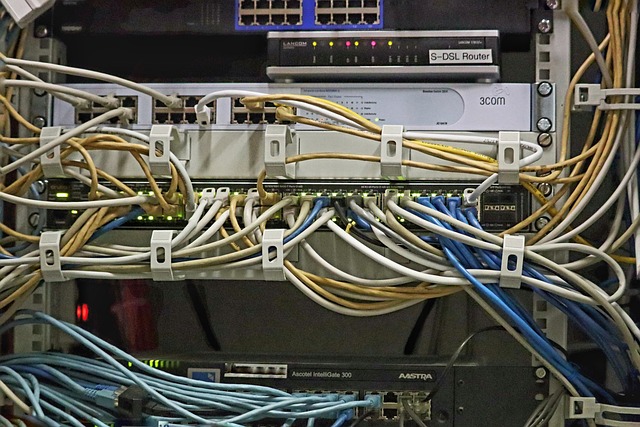# AI Technology Advancements: Pioneering Solutions for Challenges Across Various Industries
Artificial Intelligence (AI) has transformed from a futuristic concept into a vital component of modern industry. With rapid advancements in machine learning, natural language processing, and robotics, AI technologies are now addressing complex challenges across various sectors. This article explores how AI is pioneering innovative solutions in healthcare, finance, and manufacturing, showcasing its potential to enhance efficiency, accuracy, and overall productivity.
## Revolutionizing Healthcare with AI
Healthcare has been one of the most significant beneficiaries of AI advancements. By integrating AI into clinical workflows, healthcare providers are now able to analyze vast amounts of data more efficiently than ever before. Machine learning algorithms can sift through patient records, lab results, and medical histories to identify patterns that may indicate potential health risks. This capability not only accelerates diagnosis but also enhances personalized treatment plans tailored to individual patient needs.
Moreover, AI-powered imaging technologies are reshaping diagnostics. Radiologists can now rely on AI algorithms to assist in interpreting medical images, such as X-rays and MRIs. These systems can detect anomalies with remarkable precision, often identifying conditions that might be overlooked by the human eye. As a result, patients receive quicker diagnoses, which is critical in conditions like cancer where early detection can significantly influence treatment outcomes.
In addition to diagnostics, AI is playing a crucial role in drug discovery. Traditional drug development processes are often lengthy and expensive, taking years and billions of dollars to bring a new drug to market. However, AI can expedite this process by predicting how different compounds will interact with biological systems. By analyzing existing data and simulating biological interactions, AI can help researchers identify promising candidates for further testing, ultimately reducing the time and cost associated with bringing new therapies to patients.
## Enhancing Financial Services Through AI
The financial sector is experiencing a seismic shift due to AI technology. Financial institutions are leveraging AI to improve decision-making processes and enhance customer experiences. One of the most notable applications is in fraud detection. Machine learning algorithms can analyze transaction patterns in real time, identifying anomalies that may indicate fraudulent activity. This proactive approach not only protects consumers but also saves financial institutions significant sums in potential losses.
Additionally, AI is revolutionizing customer service within the financial industry. Chatbots and virtual assistants powered by natural language processing are becoming commonplace. These AI-driven tools can handle a multitude of customer inquiries, providing instant support and freeing up human agents to focus on more complex issues. As a result, financial institutions can deliver a more efficient service while simultaneously reducing operational costs.
Investment strategies have also been significantly enhanced through AI. Algorithms can analyze market trends, historical data, and economic indicators to generate insights that inform investment decisions. Robo-advisors, for instance, utilize AI to create personalized investment portfolios based on individual risk tolerance and financial goals. By democratizing access to sophisticated investment strategies, AI is empowering a broader range of individuals to participate in the financial markets.
## Transforming Manufacturing with AI Innovations
Manufacturing is undergoing a transformation driven by AI technologies, which are fostering increased efficiency and productivity. One of the primary applications is predictive maintenance. By employing IoT sensors and AI algorithms, manufacturers can monitor equipment in real time, predicting when machines are likely to fail. This capability allows for timely interventions, minimizing downtime and reducing maintenance costs. The shift from reactive to proactive maintenance strategies is revolutionizing how manufacturers manage their operations.
Furthermore, AI is enhancing supply chain management. Machine learning models can analyze vast datasets to forecast demand accurately, optimize inventory levels, and streamline logistics. By predicting fluctuations in demand, manufacturers can adjust production schedules accordingly, reducing excess inventory and associated costs. This level of agility is crucial in today’s fast-paced market, where consumer preferences can shift rapidly.
Lastly, AI is facilitating the development of smart factories. These advanced manufacturing environments leverage AI, robotics, and IoT technologies to create interconnected systems that can operate autonomously. Robots equipped with AI can perform complex tasks alongside human workers, enhancing productivity while ensuring safety. The integration of AI in manufacturing processes not only boosts efficiency but also fosters innovation, enabling companies to develop new products and services that meet evolving market demands.
## Conclusion: The Future of AI Across Industries
The advancements in AI technology are undeniably reshaping various industries, providing pioneering solutions to longstanding challenges. In healthcare, AI enhances diagnostics and drug discovery, ultimately improving patient outcomes. The financial sector benefits from improved fraud detection, customer service, and investment strategies, fostering a more secure and accessible financial environment. Meanwhile, manufacturing is experiencing increased efficiency and innovation through predictive maintenance, optimized supply chains, and the emergence of smart factories.
As AI continues to evolve, its potential applications are limited only by our imagination. The integration of AI technologies promises to drive further advancements across industries, paving the way for a future where challenges are met with intelligent solutions. Embracing these innovations will be critical for organizations looking to maintain a competitive edge in an increasingly complex world. The journey of AI technology is just beginning, and its impact will undoubtedly resonate for years to come.











